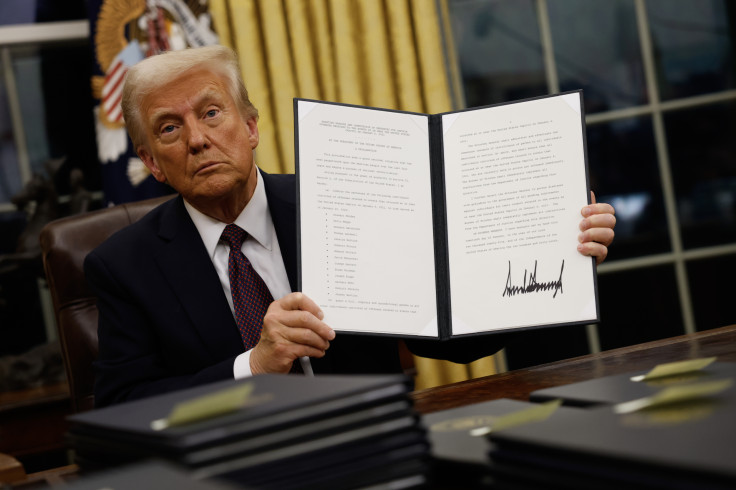
President Donald Trump's attempt to end birthright citizenship faces accruing legal challenges, with a third judge blocking his executive order in less than a month. The Latin Times consulted immigration law experts to assess the legal hurdles the order must overcome. While some political observers believe it is highly unlikely to succeed, others argue that Trump could find "sympathetic" judges willing to uphold his interpretation of the 14th Amendment.
Judicial Blocks & Constitutional Debate
As of Monday, Trump's executive order has been blocked by federal judges from New Hampshire, Maryland, and Washington state, who unanimously agree that stripping birthright citizenship away from babies based on their parents' legal status violates the 14th amendment of the Constitution, which guarantees citizenship to everyone born on U.S. soil—with the exception of foreign diplomats.
Despite the setbacks, Trump has said he expects to take the cases to the Supreme Court if needed, citing birthright citizenship as an outdated practice that encourages illegal immigration and "birth tourism."
The Core Legal Debate: "Five Key Words"
Immigration attorney Rosanna Berardi suggests the legal debate centers on five key words: "subject to the jurisdiction thereof."
"While some legal scholars argue this phrase leaves room for interpretation, courts have historically interpreted it to grant birthright citizenship to children of non-citizens born on U.S. soil," Berardi told the Latin Times, adding that the path to changing constitutional rights requires more than an executive order.
The Logistical & Legal Roadblocks
Adding to the conversation, immigration attorney Ellen B. Sullivan, told the Latin Times that the unprecedented order faces logistical challenges, as it usually takes years to get an actual decision from the Supreme Court. However, "the entire process can take a matter of months in 'emergency' situations," she added.
"From a procedural standpoint, even if the 14th Amendment were repealed or a new amendment was passed—both of which require approval from 75% of the states—I believe it would be logistically impossible for either process to be completed before Trump's term ends," Sullivan stated.
Still, she acknowledged that the next administration could continue pursuing legal efforts to implement the order, though she expressed doubt that a constitutional change would gain enough state support.
"Substantively, I think that a repeal of the 14th amendment or passage of a new birthright citizenship amendment will die with the states if the issue even gets that far," she said.
Could Trump's Order Survive in Court?
Despite widespread skepticism, Zachary Elkins, a professor at the University of Texas specializing in national constitutions, democracy, and institutional reform, told The Latin Times that Trump's executive order might have a chance.
"I would not be surprised if Trump found judges who would be sympathetic to his interpretation of the 14th amendment," Elkins told the Latin Times. "The kinds of people that he wants to exclude – the undocumented, tourists, and students – may fall outside of some jurists' view of being subject to our jurisdiction, and some countries that have birthright citizenship exclude some people from those categories, unless it renders them stateless."
According to Elkin's research however, the "simplicity and longstanding tradition" of birthright citizenship is widely valued by many justices, but "I wouldn't be surprised if another circuit saw things differently," he said.
Pushback from an Immigration Official
While Trump's order enjoys strong support among his MAGA base, a Republican immigration official told the Latin Times he opposes the move, citing "unintended consequences."
Former USCIS official Don Riding, who has over 20 years of experience working in different upper management roles within the federal agency said the move would pose a "logistical nightmare" to immigration authorities. "If birth in the U.S. no longer guarantees citizenship, then an American birth certificate will no longer be proof of citizenship," he explained.
If that were to happen, parents would have to obtain separate proof of citizenship documents for their children, which currently cost over $1,300 per child. "Alternatively, every child would need a passport, overwhelming the system and costing families hundreds of dollars per child. This is an unnecessary burden," Riding said, evaluating the matter purely from a logistical point of view.
© 2025 Latin Times. All rights reserved. Do not reproduce without permission.






